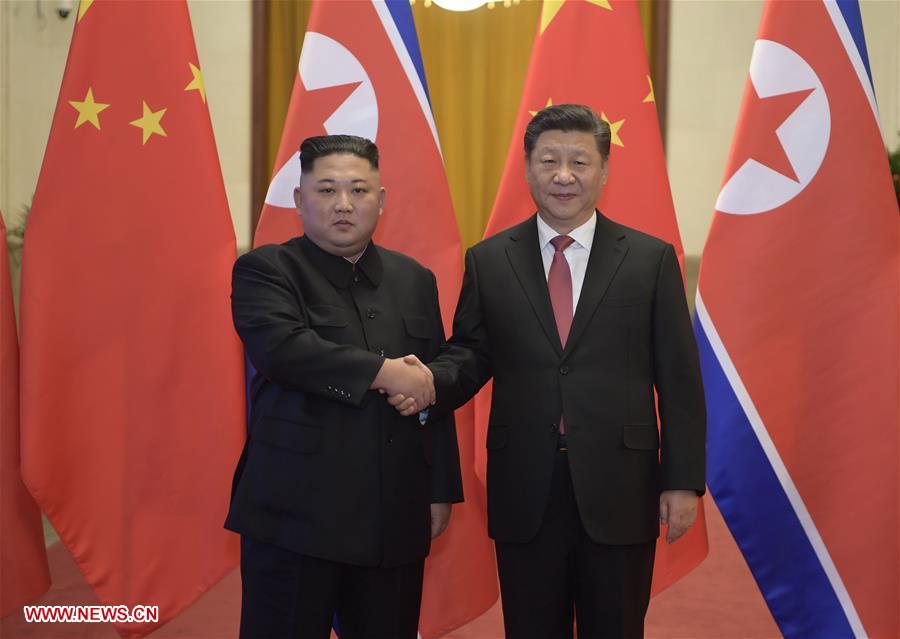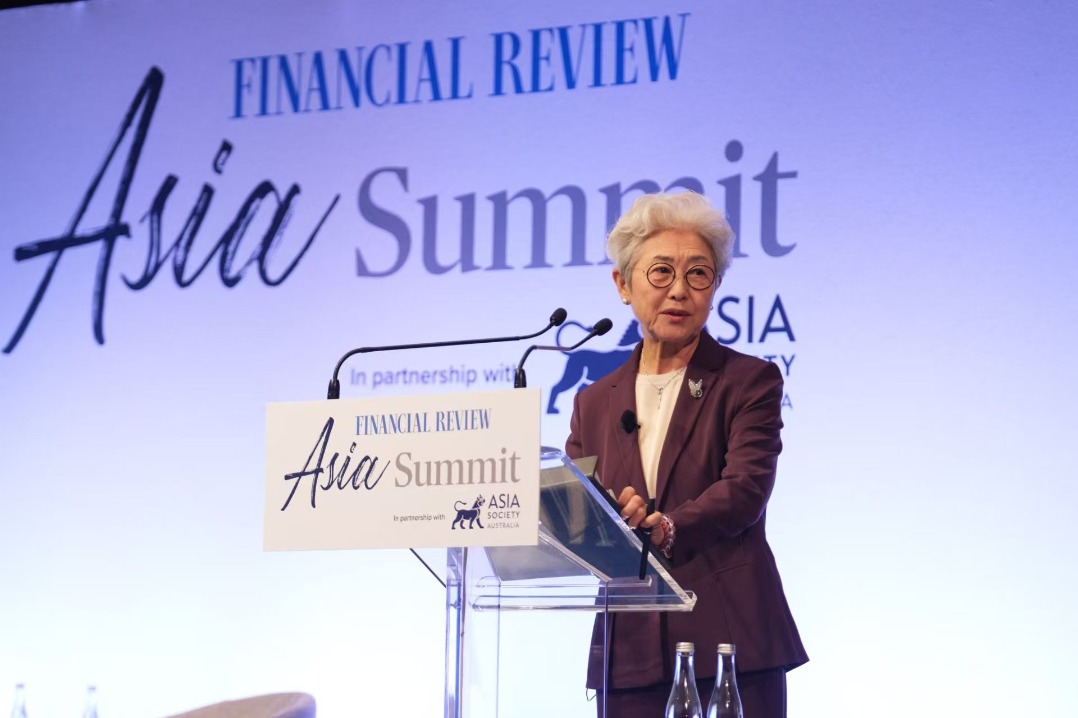Xi's visit to DPRK to stabilize peninsula


Editor's Note: President Xi Jinping will pay a two-day visit to the Democratic People's Republic of Korea from Thursday. How should we evaluate the significance of the visit? Two experts share their views with China Daily's Pan Yixuan. Excerpts follow:
DPRK not bargaining chip in talks with US
Some argue that China wants to play the "DPRK card" at President Xi's expected meeting with US President Donald Trump on the sidelines of the G20 summit scheduled for June 28-29 in Japan. Their argument could not be more wrong.
China's trade disputes with the United States and its longstanding friendship with the DPRK are two totally different issues. China will never use its friendship with the DPRK as a bargaining chip to settle its trade disputes with the US. Instead, since the stability of the Korean Peninsula is important for China and Washington is ready to continue talks with Pyongyang, Beijing seeks cooperation from all parties concerned.
The aim of Xi's visit to the DPRK is to deepen cooperation, so as to help the latter to accelerate its economic growth now that it has made economic development its priority. Beijing can share its experience of reform and opening-up with Pyongyang, and the two neighbors can seek broader economic cooperation, which will benefit not only the DPRK but also the whole of Northeast Asia.
But the nuclear issue is a hurdle to the DPRK's economic development, because Beijing and Pyongyang can only have limited cooperation because of the strict United Nations sanctions, which will continue until there is progress on the DPRK nuclear issue.
And the process to resolve the DPRK nuclear issue can achieve progress only if the neighboring countries including China, the Republic of Korea, Japan and Russia can mediate between Pyongyang and Washington and bring them back to the negotiation table. Joint third-party efforts have become even more necessary now that the US-DPRK talks are deadlocked.
If the neighboring countries are willing to provide large-scale economic help to the DPRK, the latter could take active part in global affairs while expediting its denuclearization process. And if the DPRK integrates with the international community, it will learn from China's opening-up experience how to accelerate its economic development for the benefit of its people.
Jin Qiangyi, head of International Politics Institute at Yanbian University
Strong China-DPRK ties key to peninsula stability
Xi was invited by top DPRK leader Kim Jong-un to visit the country and chose to do so in the year marking the 70th anniversary of the establishment of Beijing-Pyongyang diplomatic ties. The fact that the visit comes just over a week before the G20 summit suggests the DPRK nuclear issue could be discussed between Xi and Trump on the sidelines of the summit.
With Pyongyang seeking economic development, there is an opportunity for China and the DPRK to strengthen their comprehensive friendship and deepen cooperation. The two sides have already strengthened cooperation in tourism, people-to-people exchanges and pharmaceuticals, which are allowed by the UN sanctions.
During their meeting, Xi and Kim might discuss how to deepen cooperation in security, including denuclearization, and trade and regional development, including exploring the potential of Tumen River economic cooperation, and cooperation in developing China's northeast region.
To work with other countries in such programs, the DPRK has to expedite the denuclearization process and focus on its economy, because a peaceful Korean Peninsula will be conducive to the DPRK's economic development, and vice-versa.
If Pyongyang accelerates the denuclearization process, some countries should reciprocate its actions by giving it security guarantee, which would create an opportunity for it to develop its economy. And once its economic conditions improve, Pyongyang will depend less on nuclear power to safeguard its security.
Moreover, after talks with Pyongyang, Beijing could convey some of its messages to the leaders of other related countries at the G20 summit, in order to promote multilateral talks with the aim of denuclearizing the Korean Peninsula.
Wang Sheng, a professor at the Department of International Politics, Jilin University
The views don't necessarily represent that of China Daily.


































